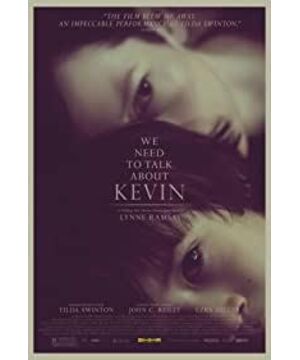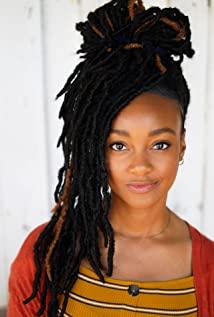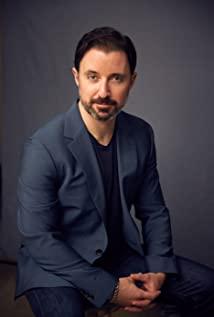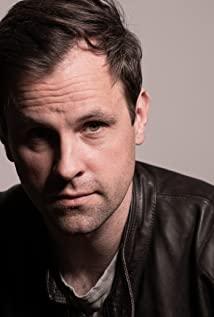Eva didn't treat Kevin as a son.
In the mother's eyes, the son represents the empty life of vulgarity, loss of career, loss of hobbies, and no thoughts, and is another self that she hates. This is especially obvious in one scene:
Eva tries to play the role of a mother. The young Kevin told him that today we came to learn to count, but we never wanted Kevin to count from 1 to 50 in one breath. Originally, the mother should be surprised and even blamed for not paying attention to the growth of her son, but Eva suddenly wrote a series of ten-digit addition operations on the paper: Are you not smart? Come on, do this.
This kind of anger is completely release and vent to oneself, and it may also be a way to avoid self-blame-I have not been a conscientious mother, and I don’t even know the number of my sons, but so what, you are not Isn't it still possible to calculate the four arithmetic?
This is a tragic literary young woman's complex emotions towards her child after an unexpected pregnancy. This is how Eva wanders between maternal love and hatred. She has countless opportunities to ease the relationship between mother and child. The sensitivity of the young child is manifested in crying, deliberately acting against the mother and even malicious, two-faced, uncertain.
If Eva is not a tangled young literary girl, she could exclaim that it was great when Kevin counted from 1 to 50. She was heartbroken after she missed and broke Kevin, but she is a tangled young literary girl. Love and hate are entangled and hidden, she is at a loss in front of Kevin and can't open her heart.
She really didn't treat Kevin as a son.
What's more tragic is that Kevin inherited the character of this literary and artistic character, and he is also a tangled and hidden literary youth.
Kevin had an illness when he was a child, and Eva took care of him during his illness, and read to him the story of Robin Hood's shooting and shooting. Turning his glasses to switch to Kevin's recovery, Eva knocked on the door and entered the room to help his son take off his clothes. The awkward son said to his mother, and walked away.
Kevin believes that his mother's love for him is only out of responsibility or compulsory love. He even said to his mother that habit does not mean liking, just like you are accustomed to me. Eva was so frightened that she opened her eyes wide, but she did not deny it—in fact, it can be said that Kevin’s various actions and words are a temptation to motherly love, but it is a pity that Eva is not a female paper with too low tears in a soap opera. She thinks too much. Many, I couldn't believe in the maternal love I could give, so I kept backing down.
So the son pressed on every step of the way.
Mutual abuse of two literary and artistic youths.
The story of Robin Hood's tenderness in illness became Kevin's pathological sustenance for his mother's love. He is fascinated by archery, from the original toy sucker target to the bigger and bigger target, more and more real arrows. But Eva was just scared. She only saw the disdain and hatred in her son's eyes, but she forgot that hatred was probably just because-have you forgotten the story that you told me back then? Why don't you come to praise me for a hundred shots?
The day before his sixteenth birthday, Kevin walked into the campus, locked the court with a cast iron ring lock, walked to the second floor, bowed, and began to perform-human flesh target shooting.
Eva returned home in despair and saw her husband and little daughter lying on the lawn with arrows stuck in them. Yes, I forgot to mention these two people from start to finish, but it really doesn't matter. All of this is a matter between mother and child. My father goes to work every day and my sister is a latecomer. In the long confrontation, most of the time there are only two people.
The lines of the prison visit in the last scene are particularly good. On the second anniversary of the shooting, Eva asked, two years have passed, why on earth? Kevin replied, I thought I knew, now I don't know. Then there were some wet red eyes and eager lips.
The guard shouted that the time was up, and Eva inhaled and stepped forward stiffly, finally giving a true affectionate hug.
This paragraph, translated in the expression of ordinary youth, should be-Kevin: I thought you hated me, and I thought I hated you, but now I don’t understand, 5555555 Eva: I love you, 5555555
So, alas, The mutual abuse of literary and artistic youths...
jump out of the plot and talk a little about the movie itself. When it comes to youthful and confused campus crime, the first thing that comes to mind is Gus Van Sant, especially his Paranoid Park, regardless of the jump of the camera or the switching of the montage. As well as using water to express depressive mania, they can all find common ground.
But the difference is obvious. After all, male directors and female directors are different. If you want to find a moment of warmth in Gus Van Sant's movie, it must be a spring night for the male protagonist and his girlfriend, and Lynne Ramsay expresses the delicate tenderness between mother and child that is really in place.
Photography is another aspect. Paranoid Park is Du Kefeng, hand-held, shaken, defocused... We need to talk about kevin was the photographer of Hours back then. Although it has a similar psychedelic feel, the sense of suffocation is more severe.
The music is Jonny Greenwood, the guitarist of Radiohead. I thought I would hear a soundtrack like Paranoid Android, but I chose some just right off-the-shelf songs. The lyrics and scenes are all in place. As for the conflict between mother and son and Eva driving. His pipa music (looks like "Ambush on Ten Sides"?), different people have different opinions, for me it's a little drama.
The guitar sound wall at the end of the credits is very good.
View more about We Need to Talk About Kevin reviews











